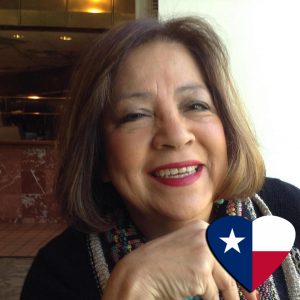Beatrice Martinez runs her own realty group, Beatrice Martinez Realtors, and is highly involved in the community, serving as the Board Chair of the Greater Dallas Hispanic Chamber of Commerce. Martinez is also an alumnus of the DRC’s Leadership Dallas program, the region’s premier leadership development program. Below, Martinez discusses her approach to her career and shares her perspective on Hispanic culture and community.
This Q&A is a part of an ongoing series of DRC interviews with representatives from our member organizations and partners.

Q: Tell us about your current role – what does your day-to-day look like, and did you always picture yourself in this kind of job, or doing something different?
A: My day-to-day starts out by taking care of family first. I then follow up on real estate, taking care of my clients and making sure they have what they need to buy or sell their homes. This can mean looking up new homes, touring homes, or making sure clients’ new homes are cleaned and ready to move into. I also keep an inventory list of handymen, plumbers, electrician, roofers, and foundation companies, if they require them. Then the fun begins with my full-time job of volunteering, with the League of United Latin American Citizens (LULAC), Tejano Democrats, the City of Dallas, and the Greater Dallas Hispanic Chamber of Commerce. Each one of my volunteering activities allows me to help others or improve the quality of life in our city and state.
Q: A 2017 study from the University of Massachusetts Amherst shows that while Hispanic workers make up 17% of the workforce, they only make up 4% of company executives. What are the barriers that prevent advancement for Hispanic workers, and what needs to be done to dismantle them?
A: One barrier is access to opportunities, whether it is education, mentoring, affordable childcare, or housing. The other is the day-to-day gender, racial, and ethnic discrimination that still exists in the workplace. Those that have made the rules set goals for diversity and equity, plus inclusion and upward mobility, and they need to ensure that they are in place and working. Diversity, equity, and inclusion should not only be the topics of the day, but they should also be the “lifestyle” of all workplaces. We should be part of the planning and not just an afterthought.
Q: What parts of Hispanic culture are you most proud of? What pieces of your culture do you integrate into your life at work and into your approach to your career?
A: I am most proud of “familia,” my parents, my sister, brothers, husband, children, and grandchildren. I’m also proud of “la música,” Mexicana and Tejana. We learn to dance when we learn to walk. There is nothing like hearing, singing, and dancing to our música. And “la comida” too – something as simple as beans and tortillas for a meal with plenty of homemade “salsa” (hot sauce), or making tamales with the family and making it a fiesta. How this all fits into my work life is that all of our family should be included in our days, even when we have a lot of work to do.
Q: Do you have a mantra or work ethic that helps you make decisions in your daily life?
A: My work ethic comes from my dad, who was an entrepreneur, and my mom, who ran the business out of our home. They never stopped working and teaching the value of hard work and commitment to completion. My dad believed in hard work, but at the same time, he believed that while anyone can work hard, not everyone knows how to take care of what he has earned and support his family.
Q: What would you want future generations of Hispanics to know, especially when it comes to building a successful career?
A: Do not forget who you are, and do not forget how you got here – and most of all, who helped you get there. And do not forget your family. We are not self-made. We all have mentors, friends, teachers, and family members who shaped our destiny in life.